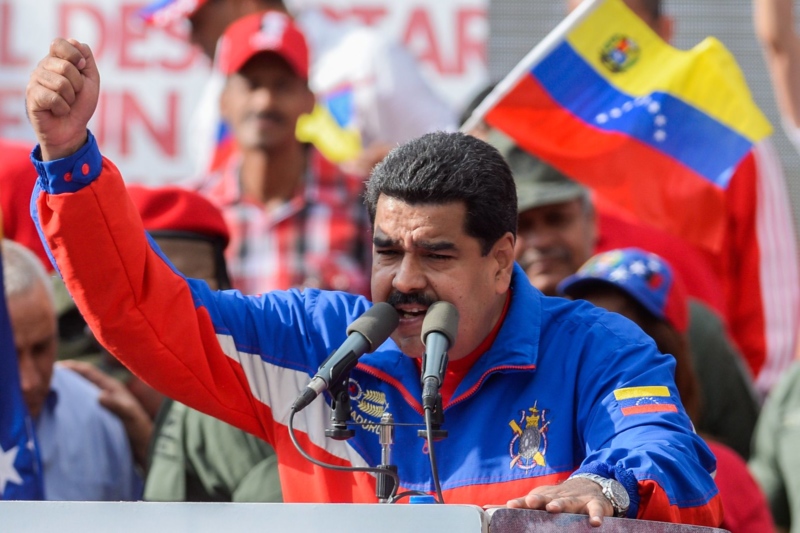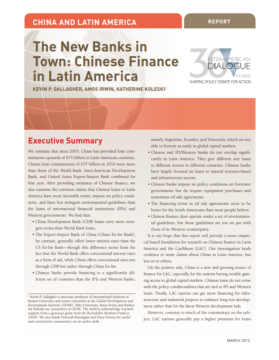Hugo Stay Home
Hugo Chavez, the Venezuelan president, has clearly been enticed by the Libyan drama, where his longtime friend and ally, Muammar al-Qaddafi, is under siege from rebel forces.
From its first weeks in office, the administration of U.S. President Donald Trump has been intent on dislodging Nicolás Maduro from power in Venezuela—resorting to everything from tough talk of “military options” and indictments of senior officials to hard-hitting sanctions and multilateral diplomacy. In January, after two years of effort, Washington seemed to be close to reaching its goal. With an uncharacteristic display of careful diplomatic coordination, the United States, along with several Latin American governments and other U.S. partners, announced that it would recognize Juan Guaidó, the then-35-year-old leader of the National Assembly, as the country’s interim president. And this move, the thinking went, would surely, before long, catalyze a military or popular uprising that would drive the dictatorial Maduro from power. When Guaidó, with the support of some military figures, launched a high-stakes attempt to seize power at the end of April, it seemed that Maduro’s end might finally have arrived.
Except it didn’t. The attempt failed, and since April, Venezuela has remained stuck in a purgatorial stalemate. Maduro presides over a collapsing state but remains entrenched in Caracas. Guaidó, the country’s most popular political figure, is too powerful to jail but wields little actual authority. And the United States continues to insist on its demands, gambling that “maximum pressure”—diplomatic isolation, intensifying sanctions, and threats of military force—will eventually bring Maduro down, despite its failure so far. Meanwhile, the humanitarian catastrophe in Venezuela, where by year’s end GDP will have fallen 62 percent since 2013 and six to eight million people don’t have enough to eat, goes on.
The United States must now reassess its approach. Washington shouldn’t give up its sustained focus on the crisis or its stated objective of restoring democracy and constitutional order, but it does have to accept the facts on the ground and recognize that maximalist demands are unhelpful. Rather than clinging to the fading hope that pressure alone will topple Maduro, Washington should reorient both its sanctions policy and its diplomatic engagement around the search for a negotiated pathway to elections. At the same time, it must reckon far more seriously with the humanitarian dimensions of Venezuela’s crisis—including the damage done by U.S. sanctions.
So far, Washington has stayed far away from negotiations—including the intermittent Norwegian-sponsored talks that began in May. The Trump administration has good reason to be skeptical of talks. Dialogue has become a dirty word for many in the Venezuelan opposition as well, thanks to Maduro’s record of using negotiations to buy time, consolidate his support, and splinter his adversaries.
The administration has instead publicly raised pressure on Maduro with new sanctions and tough talk from officials such as National Security Adviser John Bolton. Recent reports of contact between the Trump and Maduro teams, as well as the State Department’s pledge that the United States will not prosecute Maduro if he leaves power voluntarily, indicate some alternative views within the administration. But the need to sustain public hawkishness undercuts any private pragmatism. The result is a disjointed policy, with U.S. partners confused by Trump’s strategy and Guaidó surprised by some of the administration’s moves.
[...]
Hugo Chavez, the Venezuelan president, has clearly been enticed by the Libyan drama, where his longtime friend and ally, Muammar al-Qaddafi, is under siege from rebel forces.
Estimates of the volume, composition, and characteristics of Chinese lending to the region since 2005.
Is the Venezuelan government likely to comply with the IACHR’s ruling or will it uphold the ban?
 Jeso Carneiro / Flickr / CC BY-NC 2.0
Jeso Carneiro / Flickr / CC BY-NC 2.0
